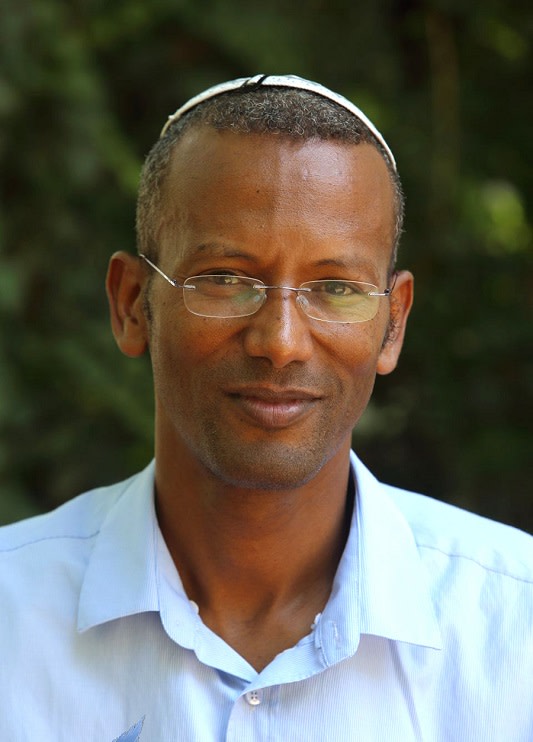Rabbi Dr. Sharon Shalom, head of the International Center for the Study of Ethiopian Jewry, speaks candidly, clearly, and to the point. “Our purpose,” says Shalom, “is not to prove that the members of the Ethiopian Jewish community are really Jewish – because the Jews of Ethiopia are Jewish! We do not deal with issues relating to the color of one’s skin or other matters regarding external identification. Rather, we are dealing with identity.”
Elaborating on the differences between identification (Hebrew: zihuy) and identity (zehut), Shalom explains that identification refers to how society views a person via their external characteristics and features, such as the color of their skin. Identity, on the other hand, refers to the individual’s own life story, experiences, and memories.
The primary activities of the Center, says Shalom, are in uncovering the traditions and treasures of Ethiopian Jewry. “These are traditions that the Jewish people forgot, and we are accepting these traditions for the Ethiopian community.”
The International Center for the Study of Ethiopian Jewry has been active in organizing and participating in recent conferences about Ethiopian Jewry. In September, the Center held an international conference in Jerusalem and hosted researchers and professors from Ethiopia for the first time. Following the successful meeting, the Ethiopian guests invited Shalom and the members of the Center to a conference that was held in Gondar several weeks ago. Shalom calls the conference in Gondar “historic” and adds that the University of Gondar announced the establishment of a center at the university that will study the Jews of Ethiopia and will be operated with the assistance of the International Center for the Study of Ethiopian Jewry. “This shows that the Jews of Ethiopia are an important part of the culture and history of Ethiopia,” he says.

At the Gondar conference, Shalom and University of Gondar staff discussed a number of areas of cooperation that will soon be taking place, including exchange programs between Ono and Gondar that will bring students and lecturers to each institution, as well as research partnerships between Ono and Gondar. In addition, the Center and the University of Gondar are currently preparing a research journal.
Shalom and members of the Center recently returned from a visit to Brandeis University in Waltham, MA, for the opening of the first English-language curriculum on Ethiopian Jewry. During his visit, Shalom met with Brandeis President Ronald D. Liebowitz. “When American college students learn about Ethiopian Jewry in Israel, they will learn about the meaning of keeping traditions for 3,000 years,” says Shalom. “Zionism means abandoning your village and walking through the desert to reach Jerusalem. Many Jews in the United States helped Ethiopian Jews. We have created a curriculum for American Jewish high schools about Ethiopian Jewry that highlights issues relevant to American youth. We are giving back to them.” The Center has also held conferences in conjunction with the Zalman Shazar Center and the Aleh B’Tamar organization, which promotes the Yemenite Jewish heritage.
Shalom, who has headed the Center since its inception in 2019, points out that the location of the Center on the campus of Ono Academic College in Kiryat Ono was not happenstance. “Ono Academic College, by its very nature, is a multicultural academic institution – not just in speech but in deed. Today, Ono is Israel’s largest college with 20,000 students, half representing the first generation in their families in academia. Of our 20,000 students, 4,000 (20%) are Arab-Israeli students, 800 are of Ethiopian descent, and 4,500 are ultra-Orthodox.”
At Ono, multiculturalism is a guiding principle reflected in the makeup of the student body as well as the academic and administrative staff. Population segments that are underrepresented in Israeli higher education institutions find their home at Ono: Arabs, Druze, students of Ethiopian descent, ultra-Orthodox and all others.
The various conferences and numerous activities conducted by the Center, says Shalom, are providing both the rabbinic world and the world of scholarly research with a new language and paradigm for understanding and appreciating the Jews of Ethiopia. “We are creating a new language,” he concludes, “and through this language, we can connect not only with Ethiopia, but with the world, so that it can benefit from the beauty and treasures of Ethiopian Jewry.”
This article was written in cooperation with Ono Academic College
